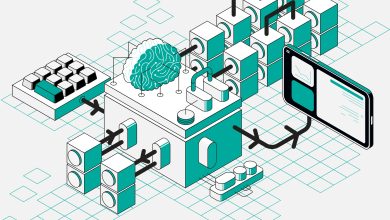
Introduction
Artificial Intelligence (AI) has evolved from a futuristic concept to become the driving force behind increasingly intelligent applications in nearly every industry. From natural language processing to predictive analytics, AI is enabling businesses to develop smart solutions that address real-world problems. For organizations ready to accelerate innovation, exploring professional AI Development Services can ensure the right tools and strategies are in place to maximize results. Below, we explore the 10 best AI development tools that empower developers, startups, and enterprises to build smarter, more reliable, and more impactful applications in web developer services.
1. TensorFlow
TensorFlow is one of the most widely adopted open-source frameworks for building AI models. Backed by Google, it supports both deep learning and machine learning workflows, making it a de facto industry standard. Developers love TensorFlow for its scalability, extensive documentation, and large community. Whether you are training neural networks for image recognition or deploying AI at scale in production, TensorFlow offers robust tools that accelerate innovation and make it more reliable.
2. PyTorch
PyTorch, developed by Meta AI, has gained popularity rapidly due to its simplicity and flexibility. Researchers and developers value it for its dynamic computation graphs and ease of debugging, making it ideal for experimenting with cutting-edge models. PyTorch’s ecosystem now includes TorchServe for model deployment and TorchVision for computer vision projects, making it a full-stack solution for AI enthusiasts.
3. Microsoft Azure AI
Microsoft Azure AI offers cloud-based services that simplify AI development for enterprises. With built-in APIs for vision, speech, and language, developers can integrate intelligent features into applications without needing extensive machine learning knowledge. Azure AI also supports large-scale training of custom models, helping businesses unlock insights from massive datasets.
4. IBM Watson
IBM Watson has become a trusted name in the AI space for its enterprise-ready solutions. It specializes in natural language processing, making it ideal for chatbots, virtual assistants, and sentiment analysis. Businesses rely on Watson to turn unstructured data into actionable intelligence. With Watson Studio, developers can build, train, and manage AI models within a secure environment, ensuring both innovation and compliance.
5. Google Cloud AI
Google Cloud AI combines the power of Google’s advanced research with cloud infrastructure. From AutoML for custom model creation to APIs for translation and vision, Google Cloud AI makes sophisticated AI features accessible to developers at all levels. Its integration with BigQuery and other data services also makes it a favorite among enterprises focused on data-driven decisions.
6. OpenAI API
OpenAI has redefined what’s possible with language models, and its API allows developers to integrate these capabilities into their applications. From building chatbots to content generation tools, the API provides natural language processing at an unprecedented scale. Companies looking to innovate quickly are adopting the OpenAI API to enhance customer experiences and streamline workflows.
7. Amazon Web Services (AWS) AI
AWS AI provides a robust suite of services, including SageMaker for machine learning, Rekognition for image analysis, and Polly for lifelike speech synthesis. With AWS’s global infrastructure, developers can scale their AI solutions seamlessly across regions. This makes AWS AI one of the most reliable choices for both startups and large enterprises.
8. H2O.ai
H2O.ai is an open-source platform designed for data scientists and businesses seeking fast, scalable machine learning capabilities. It supports deep learning, gradient boosting, and generalized linear modeling, making it versatile for a range of use cases. Its automated machine learning (AutoML) capabilities help organizations reduce development time while ensuring accuracy.
9. RapidMiner
RapidMiner is a data science platform that empowers developers with drag-and-drop functionality and visual workflows. It’s beneficial for organizations that want to accelerate AI adoption without deep programming knowledge. RapidMiner supports data preparation, machine learning, and deployment, offering an all-in-one solution for building intelligent applications.
10. KNIME
KNIME is a free and open-source analytics platform that facilitates the integration of machine learning and data science workflows. It allows developers to create modular data pipelines, connect with Python and R, and incorporate advanced AI algorithms. KNIME is a favorite among teams that want flexibility and transparency in how data is processed and analyzed.
Why Choosing the Right AI Tool Matters
The right AI tool can mean the difference between slow progress and breakthrough innovation. While some platforms excel at enterprise-level scalability, others shine in research and experimentation. Before selecting a tool, businesses should consider their goals, resources, and long-term vision.
When companies need expert support in choosing the right solution, identifying the right partner with insights into Future Trends in AI can provide direction and ensure alignment with both business goals and technical requirements.
Frequently Asked Questions (FAQs)
What is the most popular AI development tool today?
TensorFlow and PyTorch are currently the most popular, each dominating in research, industry, and enterprise adoption.
Which AI tools are best for beginners?
RapidMiner, KNIME, and Microsoft Azure AI are excellent for beginners due to their user-friendly interfaces and ready-made models.
Can AI development tools be integrated into mobile applications?
Yes. Frameworks like TensorFlow Lite and cloud-based services such as AWS AI and Google Cloud AI allow developers to integrate AI into mobile apps efficiently.
Do I need coding skills to use AI development tools?
Not always. Platforms like RapidMiner and H2O.ai offer low-code or no-code solutions, making AI accessible to business analysts and non-programmers.
Which industries benefit most from AI development tools?
AI is transforming industries such as healthcare, finance, retail, logistics, and marketing by automating tasks, predicting outcomes, and improving customer engagement.
Conclusion
The landscape of AI development tools is rich with opportunities for innovators. Whether you’re a researcher exploring cutting-edge algorithms or a business leader seeking smarter applications, these tools provide the foundation for turning ideas into reality. By combining the power of trusted platforms with expert guidance, organizations can build applications that are not only intelligent but also reliable and impactful. This is no longer optional; it’s essential for staying competitive. The right tools, combined with expert support, ensure your vision for smarter applications becomes a success story.




